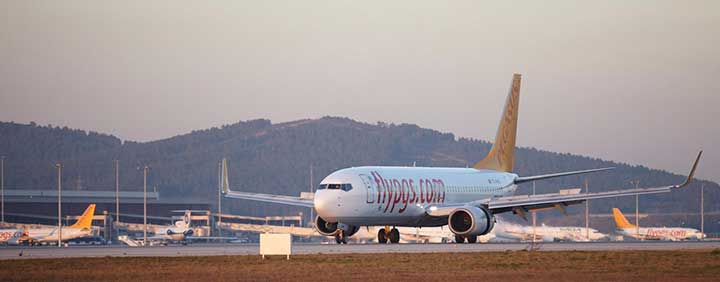By: Waseem Shabbir
As the expiration of 100 years’ international peace agreement named “Treaty of Lausanne” by 2023 is approaching speedly, debates among various global geo-political and geo-strategic thinkers are gaining momentum. During the last one decade, Recep Tayyip Erdogan, has emerged as a vibrant, dynamic and a vigorous leader to international prominence in all political spheres and domains. His unswerving commitments and solid determinations solely lie in making the Turkey great again, striving to pursue much more assertive and nationalistic foreign policy which is the indicative of Turkey’s resurgence to past glorious Ottoman Empire.
Speaking at the 5th Anatolian Media Awards ceremony, President Erdoğan said, “We work day and night to achieve Turkey’s goals for 2023 in accordance with the responsibility we have undertaken and the promise we have made. He also declared that, era beyond 2023 will be a new epoch of countless resounding victories and conquests, enabling us to transform the future of entire region as per our will.
Termination of above mentioned treaty by 2023 has given birth to so many questions in our minds. As whether Turkey will be able to reclaim its lost empire ? Will it be in position to thrive economically ? Will it emerge as dominant power across Europe and middle east ? Will it still be the member of NATO ? To answer all aforementioned queries, we have to comprehend the prevailing geo-political dynamics by delving deep into the historic perspective of Lausanne agreement signed on 24, July, 1923 until 24, July, 2023.
The Ottoman Empire was one of the mightiest and longest-lasting dynasties in world history. This Islamic-run superpower ruled large areas of the Middle East, Eastern Europe and North Africa for more than 600 years, from 13th century to until 20th century. During the rule, the empire started to decline for several reasons which include its over dependence on agriculture than making advancements in industrial sectors, majority of population was uneducated, lack of research, heterogeneous nature of all units with blend of multiple ethnicities under empire, so unable to incorporate into a single whole, destructive rivalry with Soviet Union and finally choosing the wrong side of Germany, Bulgaria and Austro-hungry as central powers in First World War, became the significant cause of its demise with severe defeat at the hands of allied powers including Great Britain, France, Italy, Russia and Japan.
Right after the fall of empire, “Treaty of Severe was signed between allied powers and Ottoman Empire on 10, August 1920, which actually marked the beginning of partition and dismemberment from the empire. The Treaty ceded large parts of Ottoman territory to France, the United Kingdom, Greece, and Italy, and created large occupation zones within the Ottoman state. However, this peace accord was totally unacceptable for the then Mustafa Kamal Ataturk, and this ignited the turks war of independence led by Kamal to defeat the combined armies of the signatories of the Treaty of Severe. In that bloody war Turks achieved a tremendous victory especially on Greece between 1922 to 1923, paving the way for Treaty of Lausanne.
“Treaty of Lausanne” an international peace agreement signed on July 24 in 1923 in the “Beau Rivage Plus” hotel, Lausanne, Switzerland. Signatories of the Treaty are the victorious powers of the First World War, especially Britain, France and Italy, and the Ottoman Empire. On the basis of this treaty, the Ottoman Empire was divided, new boundaries were demarcated which led to the establishment of the Turkish modern national state under the presidency of Mustafa Kamal Ataturk with Ankara as its capital. Turkey had to renounce its sovereignty over Cyprus, Libya, Egypt, Sudan, Iraq and the Levant, Macedonia, except cities were located in Syria, such as Urfa, Adana and Gaziantep and Kells and Mrash. This also led to the demarcation of Greece and Bulgaria’s borders with the Turkish state, which maintained the annexation of Istanbul. As per treaty clauses, Turkey was restricted from drilling oil and natural resources. Water of Bosphorus was declared as international route and opened for shipping. Treaty of severe was abolished. New laws and principles were established for Turkish water straits, traffic rules, and navigations.
It is perceived that, world community is paying an enormous Amount of attention to the expiry of Lausanne Treaty, now a days. According to International Laws, the stipulated treaties, automatically come to their conclusion after 100 years. But here, also exists two school of thoughts, one which favors the expiration after 100 years and the other one opposes and adamant on a believe that once an International treaty or an agreement is signed, it can not be expired as long as the signatory countries are existing. They are of the view that if so happens, Treaty of Versailles would have ended till now, which has exceeded its 100 years, which was signed in 28, june, 1919.
However, If the “Treaty of Lausanne” is invalidated by 2023, it will definitely leverage the position of Turkey to a considerable extent. It will have the right of drilling oil on its own soil. Turkey will also collect toll from every ship in return for using her water channel Bosphorus Strait. There will be greater number of chances for the Turkey to be relinquished frim NATO countries. It will independently formulate its laws and policies. All these perks will certainly add to its sphere of influence across the region. Turkey will surely thrive economically upto an extent.
Notwithstanding, reverting to the era of Ottoman Empire and regaining control on lost territories seems a distant and an impracticable move.For instance, if it had been an easier endeavour to acquire back and dominate the lost areas, today’s Russia would have returned to Soviet Union with poland and Central Asian Republics as its part. Likewise, India, Pakistan and some other smaller nations would have become a part of United Kingdom until now. Germany would have become a Kingdom. Secondly, today’s political paradigms are in a sharp contrast to that of past happenings. Now, all those states, once part of Ottoman Empire, have been flourished democratically, they are economically strengthened, and are in strong position to defend their territorial integrity and not to let their sovereignty be compromised.
Nevertheless, as 2023 is drawing nearer, Erdogan is being found more active and energetic, involved in regional politics in order to have his say on world prominence. Events, alluding to the recent conversion of Hagia Sofia museum into Mosque on 24, July, 2020, purchase of S-400 missile defense system from Russia instead of US, a military operation, named Olive Branch on 20, January, 2018, against majority-Kurdish Afrin District of northwest Syria. Similarly, Operation Euphrates Shield, conducted by Turkish forces in Syrian Civil War leading to the Turks occupation of northern Syria, are all the indications linked to Turkey as an active player on all fronts.
Realising Erdogan augmenting Turkey’s influence across the region and looking forward to lead Muslim world, west and its allies are in severe state of pain and trauma. In addition, Turkey and Saudi Arabia have never been in cordial relations due to their divergence over numerous issues including their varying positions on Palestine Issue, issue of an open opposition by Turkey to the ouster of Egyptian President Mohammad Morsi which was manoeuvred by Saudi Arabia and the United States. Moreover, Turkey’s and Saudi Arabia’s divergent perspectives and interests regarding the Syrian Civil war have brought both countries to an antagonism. The perplexities of the conflict have drawn Turkey closer to Russia and its allies China and Iran. However, The United States, Israel and Saudi Arabia, stand united on the opposite side. Anyhow, China, Russia and Iran nexus seems to be a better fit for Turkey than NATO or any other alliance. To encapsulate, envisaging the emerging geopolitical realities, Pakistan should also revisit her foreign policy and formulate a grave strategy to catch the opportunities which Turkey is going to offer in the days to come. It should devise a holistic plan comprising of two phases pre-2023 era and post 2023 era. In addition, Pakistan should also study Turkish market in order to export required products. As per changing scenarios, Turkey can be conceived as best alternative to Pakistan than Saudi Arabia. both, Pakistan and Turkey, can seek mutual cooperation in various fields including development of military arsenals, trade and commerce, engineering and industrial zones, infrastructure development, tourism industry, areas of medicine and lots more.
The writer is working with Punjab Government Education Department, he can be reached at [email protected]








